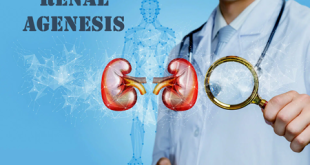Definition
Phenylketonuria (PKU) is a rare, but potentially serious, inherited disorder. Our bodies break down protein in foods like meat and fish into amino acids, which are the “building blocks” of protein. These amino acids are then used to make our own proteins. Any amino acids that aren’t needed are broken down further and removed from the body. People with PKU can’t break down the amino acid phenylalanine, which then builds up in the blood and brain. This can lead to brain damage.
Types
History
Phenylketonuria (PKU) is an innborn error in phenylalanine metabolism. It was first described by Asbjörn Fölling in 1934 in Norway. PKU has been the paradigm of inherited metabolic disorders. It also allowed the proposition for the first biochemical explanation of mental retardation. This prompted the widespread search of this condition in neonates through newborn screening. Unlike developed countries, in Mexico mental retardation is still caused by PKU; therefore it is important to know the history of the problem, the PKU experience in Mexico and future perspectives.
Epidemiology of PKU
PKU is most commonly diagnosed in neonates because of newborn screening programs. Consider PKU at any age in an individual with developmental delay or intellectual disability because infants are missed by newborn screening programs on rare occasions.
No sex predilection is known. Women with PKU must restrict their phenylalanine levels during pregnancy to avoid birth defects and intellectual disability in their infants. Untreated PKU during pregnancy can result in maternal PKU syndrome, which can variably cause congenital heart defects, brain malformations, microcephaly, and intellectual impairment. In the United States, PKU is most common in whites. Worldwide, PKU is most common in whites and Asians.
Risk factors of phenylketonuria
Risk factors for inheriting phenylketonuria include:
Having two parents with a defective PKU gene: Both parents must pass along a copy of the mutated PKU gene for their child to develop the condition.
Being of certain ethnic decent: The gene defect varies by ethnic groups and is less common in African-Americans than in other ethnic groups.
Children of mothers with PKU who didn’t follow the PKU diet during pregnancy are at risk of birth defects due to the high levels of phenylalanine in their mothers’ blood.
Causes of phenylketonuria
PKU is an inherited condition caused by a defect in the PAH gene. The PAH gene helps create phenylalanine hydroxylase, the enzyme responsible for breaking down phenylalanine. A dangerous buildup of phenylalanine can occur when someone eats high-protein foods, such as eggs and meat. Both parents must pass on a defective version of the PAH gene for their child to inherit the disorder. If just one parent passes on an altered gene, the child won’t have any symptoms, but they’ll be a carrier of the gene.
Symptoms
PKU doesn’t usually cause any symptoms if treatment is started early. Without treatment, PKU can damage the brain and nervous system, which can lead to learning disabilities.
Other symptoms of untreated PKU include:
- Behavioural difficulties – such as frequent temper tantrums and episodes of self-harm
- Fairer skin, hair and eyes than siblings without the condition (phenylalanine is involved in the body’s production of melanin, the pigment responsible for skin and hair color)
- Eczema
- Recurrent vomiting
- Jerking movements in arms and legs
- Tremors
- Epilepsy
- Musty smell on the breath, skin and urine
Diagnosis and test
- PKU can be easily detected with a simple blood test. All states in the United States require a PKU screening test for all newborns as part of the newborn screening panel. The test is generally done by taking a few drops of blood from the baby before the baby leaves the hospital.
- If the screening test is positive, further blood and urine tests are required to confirm the diagnosis. Genetic testing is also done.
Treatment and medications
The main treatment for phenylketonuria includes:
- A lifetime diet with very limited intake of protein, because foods with protein contain phenylalanine
- Taking a PKU formula — a special nutritional supplement — for life to make sure you get enough essential protein (without phenylalanine) and nutrients that are crucial for growth and general health
A safe amount of phenylalanine differs for each person with PKU and can vary over time. In general, the idea is to consume only the amount of phenylalanine that’s necessary for normal growth and body processes, but no more. Your doctor can determine a safe amount through:
- Regular review of diet records, growth charts and blood levels of phenylalanine
- Frequent blood tests that monitor PKU levels as they change over time, especially during childhood growth spurts and pregnancy
- Other tests that may be done to assess growth, development and health
Prevention of phenylketonuria
If you’re a woman with phenylketonuria who’s considering having a baby:
Follow a low-phenylalanine diet: Women with PKU can prevent birth defects by sticking to (or returning to) a low-phenylalanine diet before becoming pregnant. If you’re a woman with PKU, talk to your doctor before you start trying to conceive.
Consider genetic counselling: If you have a history of PKU, a close relative with PKU or a child with PKU, you may also benefit from preconception genetic counseling. A doctor who specializes in medical genetics can help you better understand how PKU is passed through your family tree. He or she can also help you determine your risk of having a child with PKU and assist with family planning.
 Diseases Treatments Dictionary This is complete solution to read all diseases treatments Which covers Prevention, Causes, Symptoms, Medical Terms, Drugs, Prescription, Natural Remedies with cures and Treatments. Most of the common diseases were listed in names, split with categories.
Diseases Treatments Dictionary This is complete solution to read all diseases treatments Which covers Prevention, Causes, Symptoms, Medical Terms, Drugs, Prescription, Natural Remedies with cures and Treatments. Most of the common diseases were listed in names, split with categories.







